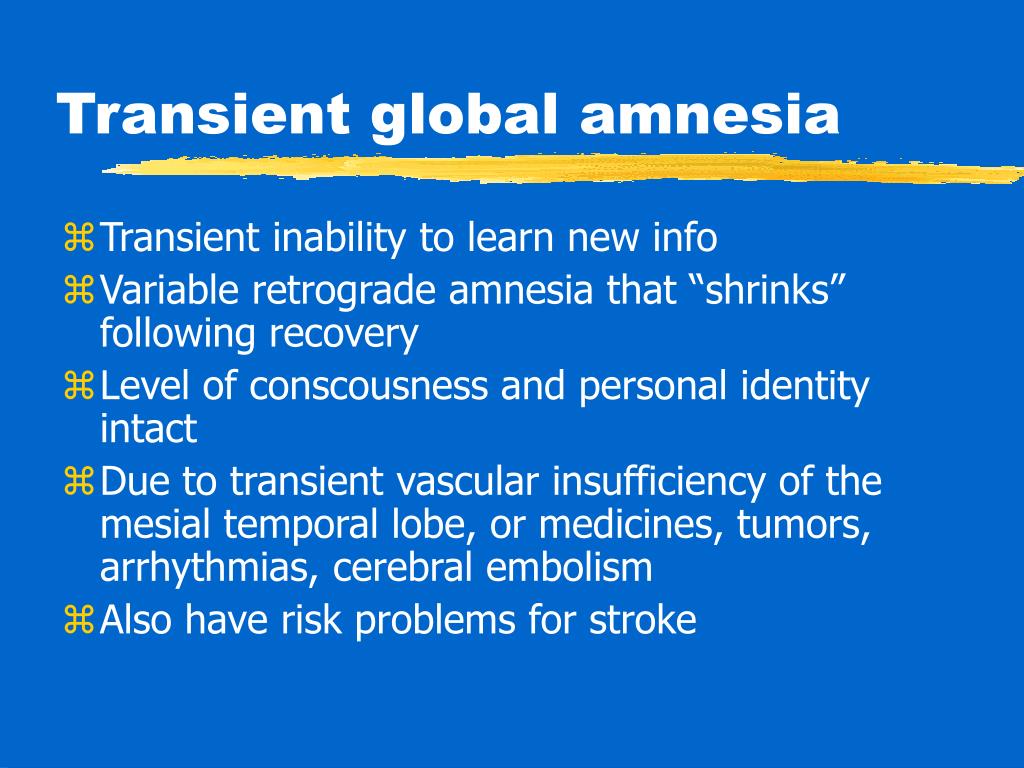

Total or partial amnesia for the episode persists and there are no other neurological signs and symptoms. The patients often exhibit stereotyped behavior, asking the same question over and over again. Transient global amnesia (TGA) is a self-limited disorder characterized by a sudden, unexplained, short-term memory loss, with preserved consciousness and self-awareness. We must bear in mind that TGA can be an associated clinical disorder of cingulate gyrus infarct. Unilateral ischemic lesions of limbic system structures may result in TGA. The remainder of the examination was normal. No lesions involving other limbic system structures such as thalamus, fornix, corpus callosum, or hippocampal structures were seen. He was found to have an acute ischemic stroke of small size (15 mm of maximal diameter) at the right cerebral cingulate gyrus diagnosed on brain magnetic resonance imaging. He had hypertension and hypercholesterolemia. The patient, a 62 year-old man, developed two episodes of TGA. We present a patient with TGA associated with a small acute infarct at the cingulate gyrus. In the majority of TGA cases, no causes can be identified and neuroimaging, CSF studies and EEG are usually normal. Transient global amnesia (TGA) is a syndrome of sudden, unexplained isolated short-term memory loss. Initially, it was thought that total resolution was achieved, but more recent studies suggest there can be some minor residual impairment surrounding the event as well as some subclinical cognitive deficits, even years later.Background. The symptoms will begin to improve within hours and memory will slowly, and almost entirely, return over the course of the next 24 hours. They will repeatedly ask the same question, as they forget they just asked the question moments before. Even with visual cues, such as pictures taken during the day, they will have no recollection of the events. They will often not recall people or locations from the past few hours and will feel disoriented as a consequence. Patients will present with no focal neurological deficits but will often not recall how they got to the hospital, that they are in the hospital, or the day's events. The symptoms are not present when the patient awakens in the morning but occur later in the day. The presence of active seizures excludes TGA, whether new-onset or chronic. There will be no history of trauma, and the symptoms will resolve within 24 hours of onset. There are no accompanying neurological deficits or other cognitive deficits. They do not lose their self-identity ability. They will not report a loss of consciousness. Often, the person(s) accompanying the patient will report recent activity such as vigorous exertion, coitus, or severe stress.

They will display repetitive questioning and have no recall of how they got where they are or what they did in the time immediately preceding the onset.


Generally, these patients present with acute onset of several hours of memory loss. This activity reviews the evaluation and management of patients transient global amnesia and highlights the role of interprofessional team members in collaborating to provide well-coordinated care and enhance outcomes for affected patients. The diagnosis is largely a diagnosis of exclusion. The symptoms, once resolved, rarely recur and no other neurological deficits present with this condition. While there may be disorientation with respect to other people and location, the patients do not lose self-awareness. Patients often present with repetitive questioning and total anterograde memory loss that resolves within 24 hours. Studies have been inconclusive as to whether there are risk factors for the development of transient global amnesia, though some have suggested an association with a history of prior heart disease, migraine, or hyperlipidemia. It is often precipitated by particularly strenuous activity, high-stress events, or coitus, but it can be seen with migraines. Transient global amnesia (TGA) is acute onset anterograde amnesia that is temporary and usually occurs in middle-aged and older individuals.


 0 kommentar(er)
0 kommentar(er)
